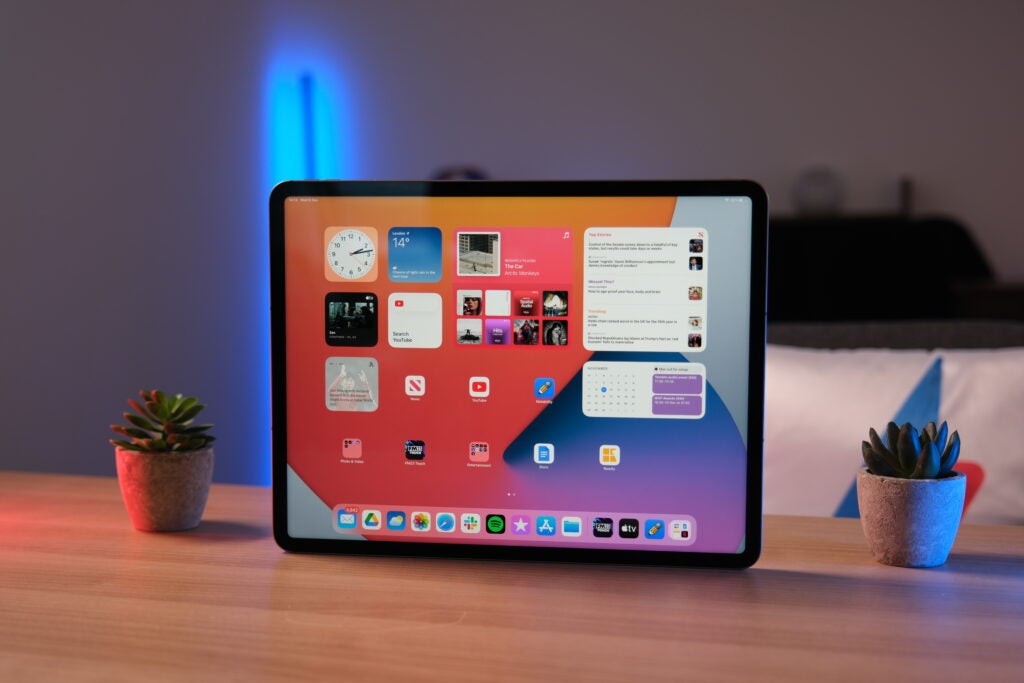
OPINION: This coming Tuesday, Apple is holding yet another showcase event where it’s expected to unveil a new range of iPads. And if rumours are to be believed, the next iPad Pro will be powered by the Apple M4 chip.
Apple analyst, Mark Gurman, reports (via Bloomberg) that Apple could launch an M4-powered iPad Pro at the Let Loose event. What’s more, he suggests that Apple will also upgrade the iMac, MacBook Pro and Mac Mini with the M4 chip later in the year.
This has all come as a big surprise, with Apple only introducing the M3 chip back in October 2023. If Gurman’s report is accurate that would mean there will only be a 7-month gap between the M3 and M4 generations. Some may applaud Apple for the speed it’s producing new chips, but I think this is more of a negative than a positive.
More of a negative than a positive
Most chip makers, such as AMD and Intel typically leave at least a 12-month gap between processor generations. This is frequent enough to ensure the brands are continuously pushing the envelope but also leaves customers enough time to purchase a new device without worrying that it will become outdated within a matter of months.
| Apple M1 | November, 2020 |
| Apple M2 | June, 2022 |
| Apple M3 | October, 2023 |
| Apple M4 | May, 2024? |
This is the same tactic that Apple uses for its iPhone launches, with new phones hitting stores every September like clockwork. When spending big bucks on the iPhone 15 Pro Max, Apple fans want to feel assured that this will be the ultimate flagship iPhone for at least the next 12 months. If there was any threat of a successor launching a few months later instead, then the appeal of buying the new phone would diminish.
Unfortunately, Apple hasn’t been quite as structured with its Mac releases. In March this year, Apple launched a new MacBook Air powered by the cutting-edge M3 chip. It wasn’t a huge upgrade overall, but the new processor at least provided a welcome performance boost. However, just two months later, reports now indicate that the iPad Pro could benefit from an M4 upgrade. This would put the tablet in a strange position of being a more powerful option than Apple’s entry-level laptop.
If I had bought a MacBook Air in the last couple of months, I’d be pretty annoyed by the potentially imminent release of the M4 chip. Suddenly, the new laptop feels outdated, and I’d be wondering why Apple didn’t instead wait a couple of months to upgrade it with the more advanced chip.


Gurman suggests that Apple has decided to accelerate its computer processor upgrades in order to show off the M4 chip’s new AI capabilities. This makes a lot of sense, with Intel recently making huge strides in AI innovation, and Qualcomm making big AI performance claims about its upcoming Snapdragon X Elite chips. The likes of Microsoft, Nvidia and Adobe have also spent the last couple of years doubling down on AI advancements, while Apple has been surprisingly quiet on the AI front in comparison and has arguably been left behind by its rivals.
The Apple M4 chip will seemingly rectify that, with the iPad Pro acting as Apple’s very first AI-powered device. I’m excited to see what kind of AI features Apple will introduce, with the company in a perfect position to innovate due to its seamless integration of both software and hardware.
However, Apple has long known about the rapid advancements and popularity of AI, so that doesn’t excuse its poor planning. The M3 has felt like a rather pointless generation to me, especially since it’s failed to materialise in several devices (including the Mac Mini and iPad Pro).


Sure, it’s helped to boost sales of Apple’s Macs, but it’s probably left many new Mac owners feeling buyer’s remorse with the M4 seemingly arriving just a matter of months after. Maybe it’s the case of the M3 chip arriving too late as opposed to the M4 arriving too early, but it’s still an issue that needs addressing.
The move over to Apple Silicon has undoubtedly been a huge success for Apple, but if it wants to continue competing with the likes of AMD and Intel, it really needs to stick more faithfully to a structured roadmap. This way, customers can feel confident that their new Mac purchase will offer cutting-edge performance for at least the next 12 months, rather than feeling outdated in a matter of weeks.
Ctrl+Alt+Del is our weekly computing-focused opinion column where we delve deeper into the world of PCs, laptops, handhelds, peripherals and more. Get it straight into your email inbox every Saturday by signing up for the newsletter.






